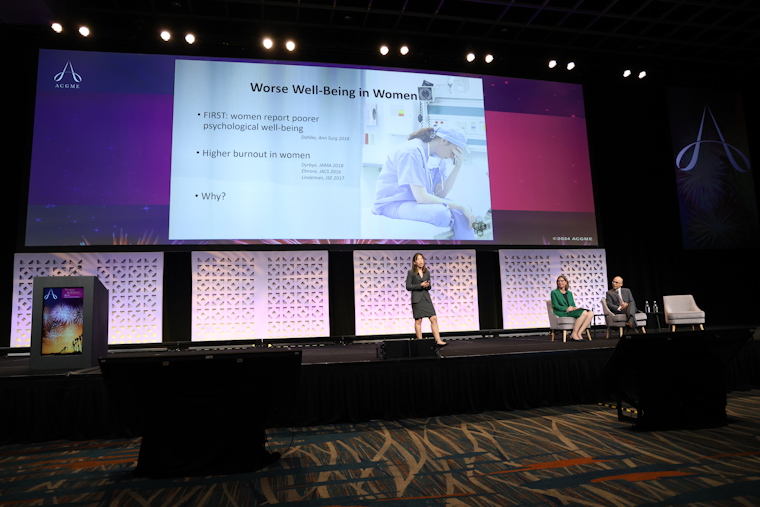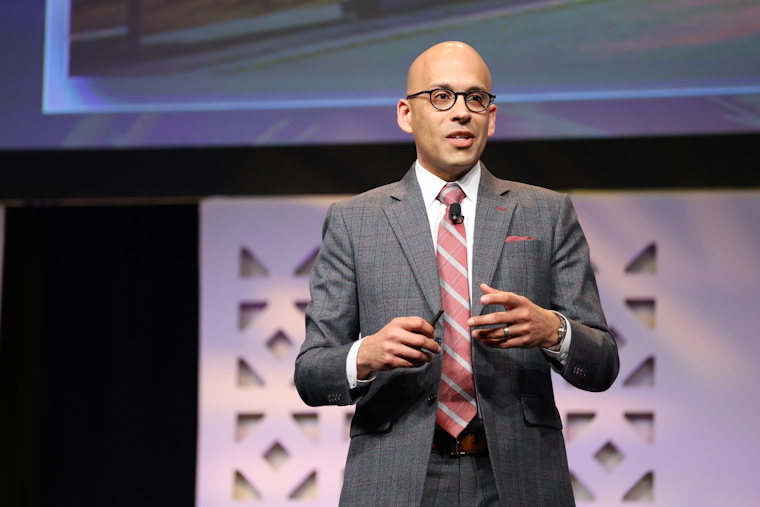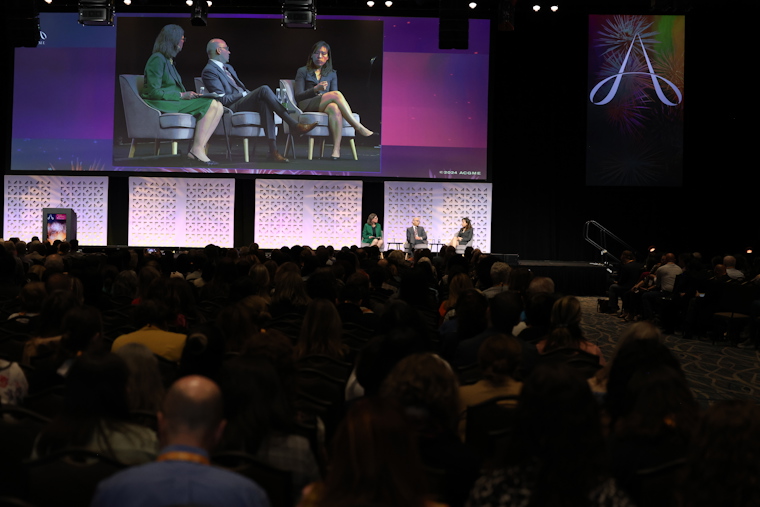#ACGME2024 Session Summary: Marvin R. Dunn Keynote Address: Improving the Culture of Residency
The Marvin R. Dunn Keynote Address at the 2024 ACGME Annual Educational Conference, moderated by ACGME Associate Chief Accreditation Officer Mary E. Klingensmith, MD, spotlighted a series of national cluster-randomized trials in surgery conducted over the last several years to address important issues in graduate medical education (GME). Speakers Karl Y. Bilimoria, MD, MS and Yue-Yung Hu, MD, MPH shared findings from the trials and provided attendees with actionable steps to improve the culture of GME.
Through a partnership among the ACGME, the American College of Surgeons, the American Board of Surgery, and the Surgical Outcomes and Quality Improvement Center at Indiana University School of Medicine, the initial trial—the “FIRST Trial”—focused on bringing high-level evidence to the issue of clinical and educational work hour policies. The findings from the FIRST Trial led to changes in the ACGME’s clinical and educational work hour requirements. Furthermore, results from the FIRST Trial and concerns of residents and program directors spurred the subsequent “SECOND Trial,” which sought to reduce resident burnout and mistreatment. The SECOND Trial recently concluded, and the experience suggests that programs are struggling to build inclusive environments, so the upcoming “THIRD Trial” will look at how to improve diversity, equity, and inclusion (DEI) in surgical departments.
Dr. Bilimoria presented the results of the FIRST Trial, which compared a rigid set of clinical and educational work hour standards to a more flexible approach; both approaches capped hours worked per week at 80. Results showed that surgical residents were either in favor of or neutral to the more flexible structure. “Certainly, we made continuity of care better with flexible [clinical and educational work] hours,” he said.
But the study also revealed that 39 percent of general surgery residents were experiencing burnout that was caused by factors other than hours worked. This finding led to the creation of the SECOND Trial, focusing on burnout and mistreatment, which concluded in June 2023.
The SECOND Trial was two pronged; it not only identified the sources of burnout and mistreatment but evaluated the effectiveness of various interventions to correct these issues. Results showed a modest but statistically significant decrease in burnout.
“The SECOND Trial actually worked and we’re really proud of that piece of it,” Dr. Bilimoria said.
Dr. Hu shared examples of burnout interventions that both worked and didn’t work. A failed intervention was free yoga, because it added more to do to the already-long list of tasks physicians are trying to accomplish in their professional and personal lives. A successful intervention was sending birthday cards to residents, which was something the residents specifically requested. While initially met with some skepticism, the card program engendered goodwill and conveyed a sense of caring from program leaders to the learners as individuals.
Drs. Bilimoria and Hu said they encouraged participating programs to share their data—for good or for ill—with the residents and faculty members to build trust through transparency. “Residents know [the data] because they’re the ones that made it look that way… Burying it fails to acknowledge the issues that are there,” Dr. Hu said.
During the SECOND Trial, it was discovered that a lack of inclusion was contributing to burnout, and that those suffering the most were from minoritized groups. This finding is informing the design of the forthcoming THIRD Trial. Like the SECOND Trial, the THIRD Trial will include initial data about the state of DEI efforts, as well as information on the effectiveness of interventions outlined in a toolkit available to participants.
While the FIRST, SECOND, and THIRD Trials focus on general surgery residency, other specialties are beginning to develop their own studies based on their models.
“Emergency medicine has been one of the most robust collaborations we have,” Dr. Bilimoria said. When other specialties conduct similar trials, he said it’s key to target the proposed interventions based on the data gathered. He noted that sources of mistreatment will vary significantly from specialty to specialty, which is why it is important for specialty communities to conduct their own trials.
“If you didn’t know where the mistreatment was coming from, you could mistarget your solution,” Dr. Hu emphasized.
The pair closed the session by encouraging surgical programs to sign up for the THIRD Trial.






